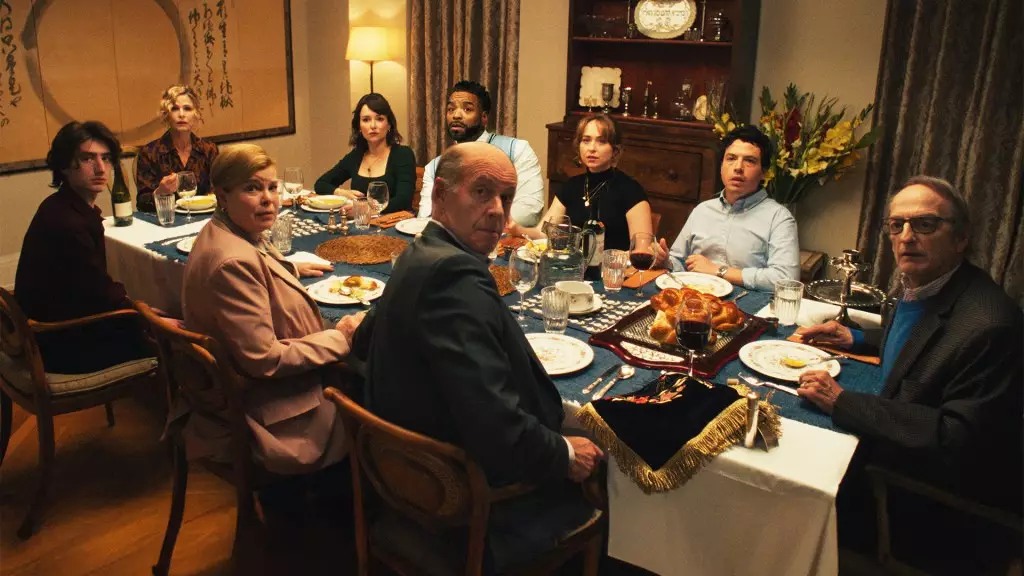In a media landscape often dominated by blockbuster hits and megastar-driven franchises, the steady ascent of indie films like *Bad Shabbos* offers a compelling critique of how we gauge cinematic success. Menemsha Films’ comedy has quietly surpassed $1 million at the U.S. box office, a feat that might seem modest in commercial terms but reveals a profound shift in audience engagement and cultural relevance. Unlike sprawling Hollywood productions with enormous budgets, these small films thrive on indigenous storytelling, community word-of-mouth, and niche appeal—factors that often get dismissed in traditional box office metrics.
This slow but persistent growth challenges the myth that only films with massive marketing budgets can succeed. These indie releases demonstrate that authenticity, relatability, and fresh perspectives hold immense value. They manage to carve out dedicated audiences, sometimes even extending their theatrical runs well beyond initial expectations. To dismiss such films as insignificant or purely marginal is to misunderstand their role in diversifying our cultural narratives and fostering creative risks that larger studios tend to shy away from.
Importance of Cultural Representation and Diversity
*Bad Shabbos* highlights the importance of representing nuanced, authentic stories within the broader conversation about cultural and religious identity. As a comedy centered on interfaith relationships and familial tensions surrounding a Shabbat dinner, it underscores how minority communities recognize the power of storytelling that resonates with their lived realities. When indie films focus on specific cultural milieus, they challenge mainstream media’s tendency to homogenize narratives or overlook minority voices altogether.
The film’s sustained popularity across multiple cities, from Florida to Los Angeles and Boston, indicates a hunger for stories that speak to diverse experiences. These films are not just niche offerings but serve as vital portals for empathy and understanding. They break down stereotypes and foster dialogue, which in turn creates a more inclusive cinematic environment. The success of *Bad Shabbos* reveals society’s readiness for nuanced storytelling that reflects the complex tapestry of American life.
Word-of-Mouth as a Sacred Currency
Neil Friedman’s emphasis on the importance of word-of-mouth is not merely a promotional strategy; it signifies a paradigm shift in how success is measured. In an era overwhelmed by digital algorithms and fleeting trends, genuine audience recommendation becomes a potent force. When a film like *Bad Shabbos* continues to extend its theatrical presence in cities across the country, it’s a testament to its authentic resonance and the community-driven nature of indie cinema.
This phenomenon underscores a vital truth: movies that explore meaningful themes and showcase strong performances can sustain relevance without huge advertising budgets. It challenges the assumption that only big, flashy marketing campaigns can ensure a film’s financial viability. Instead, it hints at a future where organic, grassroots support creates durable momentum for culturally significant storytelling.
Questioning the Cultural Monopoly of Hollywood
The dominance of mainstream Hollywood often leads to a homogenized cultural output that prioritizes spectacle over substance. Indie films, despite their limited budgets, serve as a vital counterpoint—an alternative perspective that can invigorate the cinematic landscape. Films like *Hundreds of Beavers*, *Utopia’s Pavements*, and *Secret Mall Apartment* exemplify how creative risks and unconventional narratives capture audiences’ attention and defy the conventional box office calculus.
Such productions challenge the Hollywood monopoly on cultural influence, suggesting that authentic storytelling does not always require vast resources but rather a willingness to explore daring, original ideas. As these indie titles find their footing, they elevate the broader narrative about the value of diverse voices rather than conforming to a singular, commercially-driven formula.
Looking Beyond the Box Office: The True Power of Indie Films
Ultimately, the real impact of indie cinema extends beyond immediate financial gains. It lies in its ability to shape conversations, introduce fresh perspectives, and empower marginalized voices. While Hollywood continues to chase global box office records, smaller films persist in inviting audiences to consider different truths, challenge stereotypes, and see the world through varied lenses.
This understated success story reminds us that meaningful entertainment thrives on authenticity and connection. Indie films like *Bad Shabbos* demonstrate that, even within a system often overshadowed by spectacle, there remains an important space for nuanced storytelling—one that values community, cultural identity, and shared human experiences over mere profit margins. These films challenge the cultural hegemony and open a dialogue about what cinema can and should be in a diverse and evolving society.


Leave a Reply